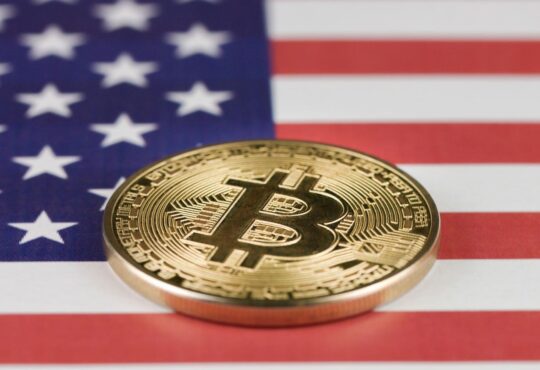
Most articles about the investment implications of elections are useless. They are akin to disputes between Chicago Bulls and Cleveland Cavaliers fans about the greatest modern-day NBA player. Chicagoans aver that the obvious answer is Michael Jordan, and work backward from that knowledge, while Cleveland supporters do the same for LeBron James. Nothing is learned from the exercise.
Take the term “Bidenomics.” The president’s supporters believe that term refers to economic decisions that have produced excellent job growth, accompanied by unavoidably high inflation caused by supply chain logjams when emerging from the covid pandemic. The president’s detractors declare the opposite: Joe Biden’s actions sparked avoidably high inflation, accompanied by high job growth caused by employers refilling their positions when emerging from the covid pandemic.
Good luck getting either side to admit that it assigns presidential responsibility for the economy only when doing so proves convenient.
More fruitful conversations occur when the topics are industry-specific. For the most part, the partisanship disappears, which permits the arguments to pass the first test of rational dialogue by being internally consistent. The policy differences, however, have been considerably less than advertised. With President Biden maintaining ex-President Donald Trump’s import tariffs, while approving even more oil-drilling permits than did his predecessor, identifying true disparities is difficult.
The bigger picture
In the upcoming months, other Morningstar researchers will provide industry-specific thoughts. This column, however, will take another angle by arguing that regardless of the details, equity shareholders have much to celebrate. Regardless of which presidential candidate triumphs—and of how the House and Senate races fall—the nation’s political climate will continue to reward stock owners.
Explaining why requires a 15-year detour. In 2009, both the business press and many institutional investors fretted that the previous year’s crisis had irrevocably altered the country’s financial politics. The failure of so many banks, brokerage firms, and highly rated bonds had angered voters, who demanded retribution. The result would be stricter regulations that would slow innovation, along with greater support for the labor movement. More money for workers, less for shareholders.
It was a reasonable belief, given both the result of the 2008 elections, which strongly favored proregulation candidates, and the subsequent emergence of the anticapitalist Occupy Wall Street movement. In addition, Congress did pass a comprehensive financial bill, enacted in July 2010 as the Dodd-Frank Act. It seemed that the United States was, as the business press had long predicted, becoming a New Europe. (The first op-ed article I ever read in The Wall Street Journal was a dire warning that the nation was developing “Eurosclerosis.”)
Same as the old boss
But the expectations were wrong. The Dodd-Frank Act turned out to be evolutionary rather than revolutionary. Aside from imposing stricter capital requirements for banks, its provisions were mostly incremental. What’s more, the open hostility to Wall Street ceased.
After a while, the Occupy Wall Street protesters folded their tents and went home, having accomplished exactly nothing. Public complaints about Wall Street became mere private mutterings.
Meanwhile, normalcy returned to the capital markets. Despite regulatory threats, the credit-ratings agencies ultimately were permitted to resume their pursuits, as if the events of The Big Short had never occurred. (Morningstar currently offers such services, although it did not do so at the time.) In addition, the size of Wall Street bonuses went from being front-page news to business-section footnotes.
Antitrust actions have followed the same pattern. In 2009, Barack Obama began his presidency by “aggressively” pursuing antitrust enforcement, seeking to block mergers and acquisitions that might reduce industry competitiveness. That soon changed. When President Obama’s tenure ended, a legal expert found that his administration’s decisions had closely resembled those of his predecessor. “Despite the rhetoric of 2008,” concluded his paper, “most mergers still are not challenged, and most that are get through with consent decrees.”
Unsurprisingly, antitrust enforcement was even looser under Trump’s presidency. Biden’s chair of the Federal Trade Commission, Lina Khan, has recently stepped up the federal government’s involvement, but so far her filings have enjoyed few courtroom victories.
Presidents may talk, but judges do the walking. And they prefer the status quo, by and large. No matter who wins the next election, expect little difference in antitrust results.
Meanwhile, anticapitalism sentiment has dwindled to the point where CEOs have become popular celebrities. For example, Tesla’s TSLA Elon Musk is not only a household name but has tens of millions of fans who follow his activities. Twenty-five years ago, General Electric’s Jack Welch was lauded by investors and the business press. In contrast, Musk is a mainstream personality. He reaches people who have never owned a stock, and who never will.
To be clear, I am not arguing that generous Wall Street bonuses, a lack of successful antitrust actions, and CEO popularity directly create high stock market returns. They are likely related, as each suggests public support for capitalism. Today’s version of political populism accepts that corporations will retain their profits, rather than demanding that those moneys be shared with the people.
That, however, is beside the point. My claim is that, for equity shareholders, elections do not bring significant change. There is much sound—Democrats promise reform and redistribution, while Republicans protest about government interference—but there is little fury. No matter who wins, the economic underpinnings remain largely intact. And those underpinnings have been very, very good for stock prices for several generations.
In short, there are plenty of reasons to sweat the upcoming election. The two presidential candidates disagree on social issues, immigration, and foreign policies, as well as on the extent of that office’s powers. There are many reasons to vote in November. The performance of equities is not among them.
Note: One potential exception to this column is Trump’s promise to impose a 60% tariff on all Chinese goods and a 10% tariff on all other imports. Most observers regard that statement as aspirational rather than precise, as with the former president’s claim that he would require Mexico to build a border wall upon taking office, but the possibility should be mentioned, as tariffs of that level could indeed affect stock prices.






